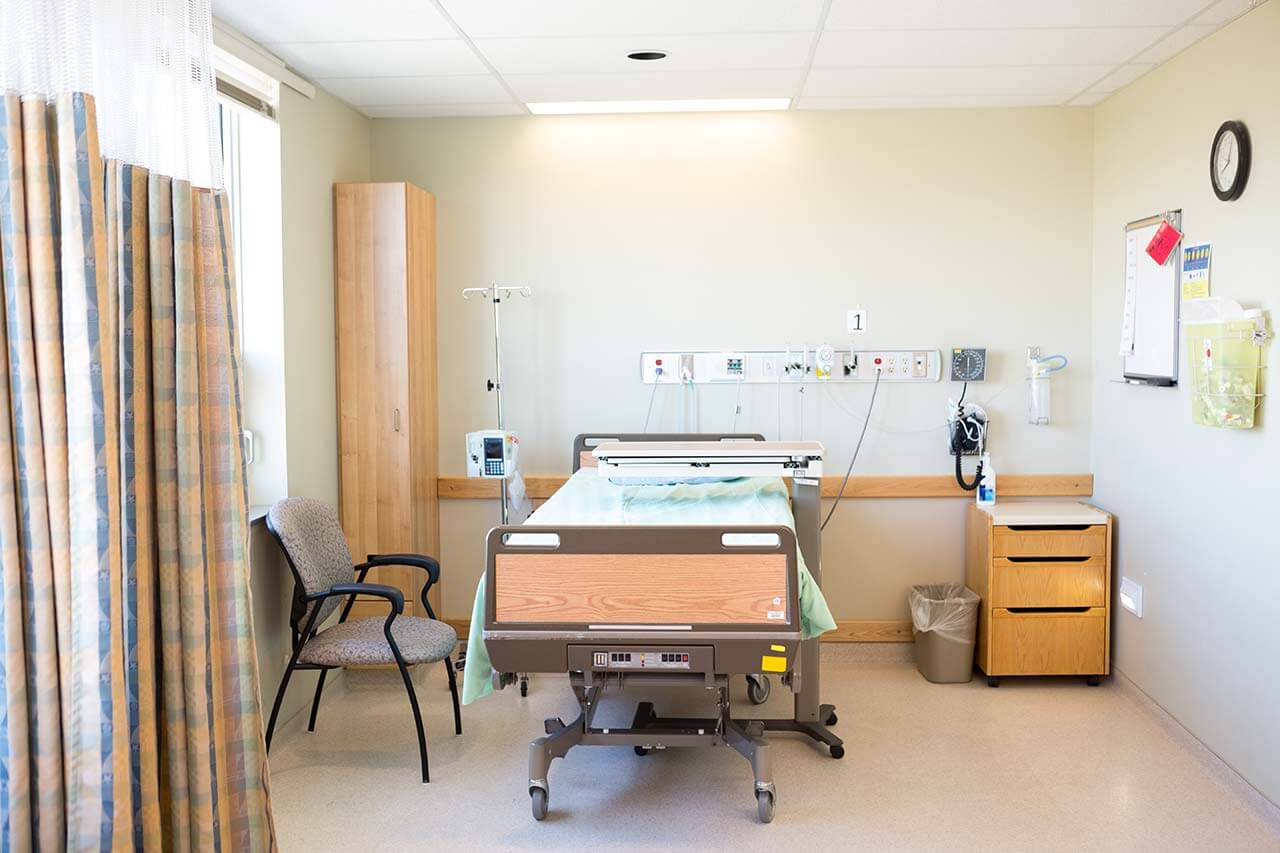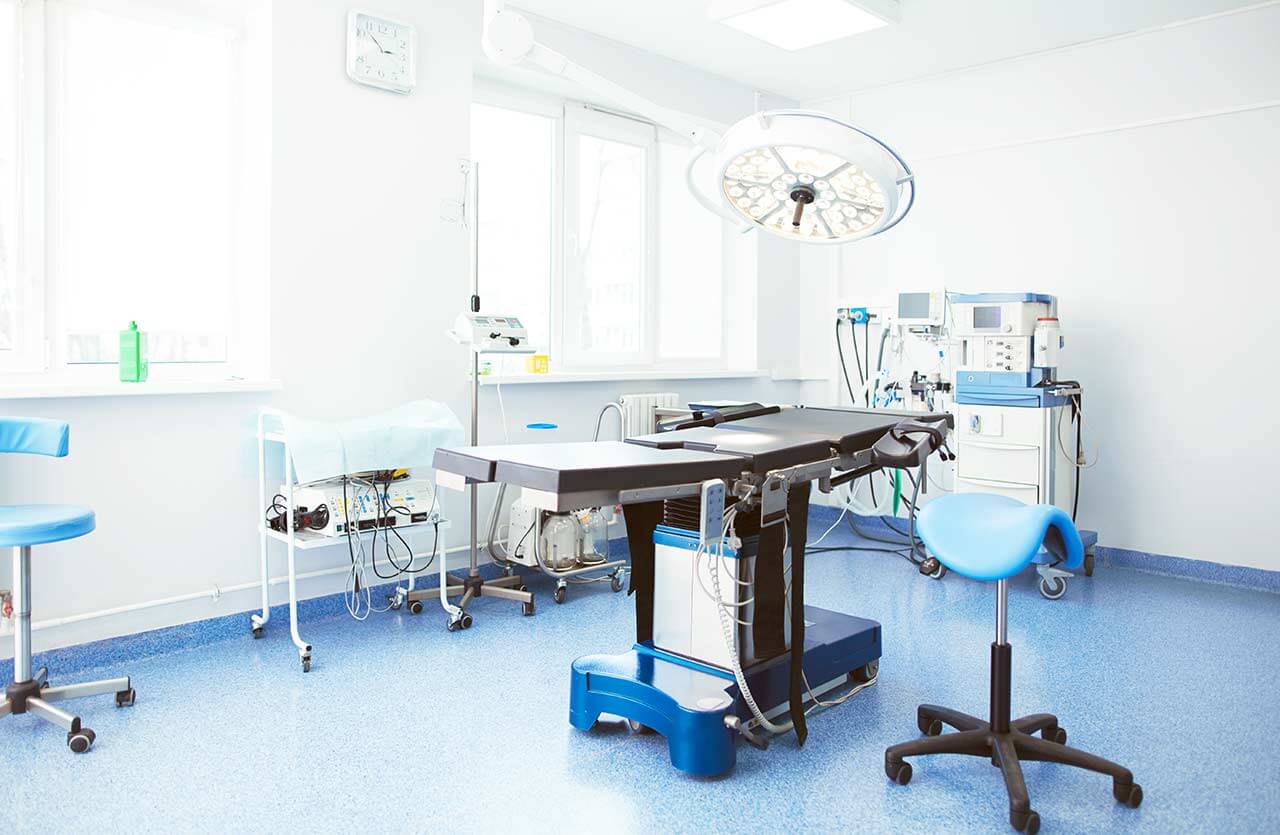
About the Department of Interventional Radiology and Neuroradiology at Schlosspark Hospital Berlin
The Department of Interventional Radiology and Neuroradiology at the Schlosspark Hospital Berlin provides all the options of modern imaging diagnostics and also specializes in image-guided therapeutic interventional procedures, including those for treating vascular diseases of the nervous system. The department's diagnostic rooms are equipped with state-of-the-art systems for digital X-ray, fluoroscopy, computed tomography, magnetic resonance imaging, and angiography. The department performs numerous highly effective and minimally invasive interventional procedures under imaging guidance for treating vascular stenosis and occlusions in all locations, internal bleeding, tumors, brain aneurysms, brain arteriovenous malformations, strokes, etc. Patients with neurovascular diseases are treated at a specialized center that is part of the department. Neuroradiologists, neurologists, and neurosurgeons cooperate closely here to provide patients with the best possible therapy recommended by a multidisciplinary team specializing in the treatment of neurological disorders. The department's patients will benefit from a modern and comfortable infrastructure as well as a highly professional and caring medical team. The Head Physician of the department is Dr. med. Annette Förschler.
In the field of interventional radiology, the department most often performs percutaneous transluminal balloon angioplasty. This minimally invasive procedure can restore vascular patency in cases of stenosis or occlusion. The procedure is widely used to dilate the coronary arteries, carotid arteries, renal arteries, femoral artery, and abdominal aorta. At the initial stage of the intervention, the doctor makes a skin puncture in the groin and inserts a special guidewire with a balloon attached to it into the vascular system. The guidewire is delivered to the area of arterial narrowing or occlusion under imaging guidance, after which a balloon is placed. The inflating balloon restores the patency of the artery, due to which the blood flow is normalized. The final stage of the endovascular procedure is stent implantation to prevent recurrent vascular occlusion. Percutaneous transluminal balloon angioplasty is performed under local anesthesia. Thus, the interventional procedure is minimally traumatic but highly effective and poses almost no risks to the patient's health.
The department's interventional radiologists have exceptional professional skills in performing embolization for benign and malignant tumors. Embolization is a minimally invasive procedure that involves the cessation of blood supply to the tumor by injecting blocking embolic agents into the blood vessels that supply the tumor. Patients with malignant tumors are also offered transarterial chemoembolization. This procedure is similar to classic embolization but involves the use of emboli combined with a chemotherapy agent. The tumor is therefore deprived of a blood supply and exposed to chemotherapy drugs. Embolization can be used as a stand-alone treatment or as a complement to a surgical procedure. For example, embolization prior to surgery allows surgeons to remove the entire large neoplasm by shrinking it beforehand. In some cases, embolization can also be used as a palliative measure. The procedure is performed under angiographic guidance and local anesthesia. In most cases, the targeted blood vessel is approached through a puncture in the femoral artery. Embolization is indicated for patients with liver, kidney, lung, uterine, prostate, and head and neck tumors.
The department also performs many interventional procedures for neurovascular diseases, including thrombolysis and mechanical thrombectomy for stroke, carotid balloon angioplasty with stenting, clipping for aneurysms, treatment of vascular malformations, and removal of angiomas, angiolipomas, and cavernomas. The department's specialists also offer interventional pain management procedures for chronic back pain, such as periradicular therapy and facet joint block. All interventional procedures are performed under imaging guidance, so the patient can be confident in the safety of the treatment. The optimal treatment for a neurovascular disease is determined by a special board involving neuroradiologists, neurologists, and neurosurgeons. The specialists cooperatively study the patient's clinical case and develop the most effective course of treatment.
The department's range of therapeutic services includes:
- Interventional radiology
- Therapeutic procedures
- Percutaneous transluminal balloon angioplasty followed by stent implantation
- Tumor embolization
- Embolization for internal bleeding
- Transarterial chemoembolization
- Percutaneous transhepatic biliary drainage
- Radiofrequency catheter ablation
- Therapeutic procedures
- Interventional neuroradiology
- Therapeutic procedures
- Thrombolysis and mechanical thrombectomy for stroke
- Carotid balloon angioplasty with stenting
- Clipping for aneurysms
- Endovascular repair for vascular malformations
- Endovascular removal of angiomas, angioblastomas, and cavernomas
- Image-guided interventional treatment for chronic back pain
- Periradicular therapy
- Facet joint block
- Therapeutic procedures
- Other therapeutic options
Curriculum vitae
Higher Education and Postgraduate Training
- 1994 - 2001 Medical studies at the Humboldt University of Berlin.
- 2003 Admission to medical practice.
- 2003 - 2007 Advanced training, Department of Diagnostic and Interventional Radiology, University Hospital Leipzig.
- 2008 Board certification in Radiology.
- 2009 Doctoral thesis defense, Technical University of Munich. Subject: "Research of the role of a new diagnostic method for brain tumors using functional magnetic resonance imaging with BOLD contrast enhancement".
- 2011 Specialization in Neuroradiology.
- 2014 Certified Instructor of the German Society for Interventional Radiology (DeGIR) and the German Society for Neuroradiology (DGNR).
Professional Career
- 2002 - 2003 Internship, Department of Radiology and Neuroradiology, Charite University Hospital Berlin.
- 2007 Scientific paper in the Fraunhofer Institute for Cell Therapy and Immunology, Leipzig.
- Since 01.04.2008 Senior Physician, Department of Neuroradiology, University Hospital Rechts der Isar Munich.
- 2010 - 2012 Managing Senior Physician, Department of Neuroradiology (focus on image-guided interventions for neurovascular diseases and functional imaging in neuro-oncology), University Hospital Rechts der Isar Munich.
- 2013 - 2016 Deputy Head Physician, Department of Interventional Neuroradiology (focus on image-guided interventions for neurovascular diseases and functional imaging in neurooncology), Vivantes Neukölln Hospital.
- Since 2016 Head Physician, Department of Interventional Radiology and Neuroradiology at the Schlosspark Hospital Berlin.
Research Focuses
- Multimodal imaging in neuro-oncology.
- Interventional treatment for stroke.
Memberships in Professional Societies
- German Society for Interventional Radiology (DeGIR).
- German Society for Neuroradiology (DGNR).
- German Radiological Society (DRG).
- European Society of Neuroradiology (ESNR).
- European Society of Radiology (ESR).
Photo of the doctor: (c) Schlosspark-Klinik GmbH




